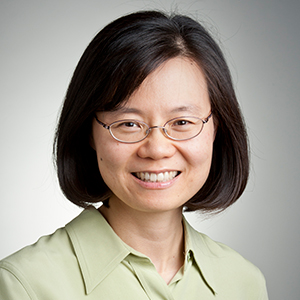The medicinal plant, Catharanthus roseus, produces the valuable chemotherapeutic terpenoid indole alkaloids (TIAs), vincristine and vinblastine, upon herbivory. TIA biosynthesis consists of ~30 enzymatic steps distributed across multiple cell types. The regulation of TIA biosynthesis is similarly complex as multiple transcription factors are required to coordinate the expression of multiple branches of the TIA biosynthetic pathway.

This regulatory network is difficult to dissect since activators (like MYC2) not only induce the expression of the TIA pathway genes but also that of repressors (like JAZ). In the case of MYC2, its role in the regulatory network was obscured by JAZ until recently. Similarly, other relationships are likely masked by repressors since the overexpression of activators alone led to limited increases in TIA production. In this talk, I will present the role of repressors in controlling TIA biosynthesis and the engineering strategies devised to reprogram regulation and enhance TIA biosynthesis.
Carolyn W.T. Lee-Parsons is an Associate Professor jointly appointed in the Departments of Chemical Engineering and of Chemistry and Chemical Biology at Northeastern University (Boston, MA). Her team of graduate and undergraduate students investigates how plants regulate the production of medicinal specialized metabolites and then devise synthetic biology strategies for engineering their increased production in plants or plant tissue cultures. Their plant system of interest is the production of chemotherapeutic drugs, vinblastine and vincristine, from the Madgascar periwinkle or Catharanthus roseus plant.
Growing up in the midst of wheat fields in Kansas, she pursued Chemical Engineering at the University of Kansas. For her doctoral research in Chemical Engineering, she investigated bioprocess strategies for increasing specialized metabolism in plant cell cultures at Cornell University. Prior to joining Northeastern, she taught for several years at Rose-Hulman Institute of Technology (Terre Haute, IN) before embarking on a career of both teaching and research.
Carolyn seeks to engage majors across disciplines in understanding the fundamentals underlying life in living organisms and translating this understanding to developing solutions to society’s grand challenges. For her teaching and research mentoring, she was awarded the Martin Essigmann Outstanding Teaching Award, the University Excellence in Teaching Award, Gilda Barabino Excellence in Mentoring Award, and the College of Engineering Excellence in Mentoring Award at Northeastern University. For her research, she was awarded the NSF Career and the College of Engineering Faculty Fellow.